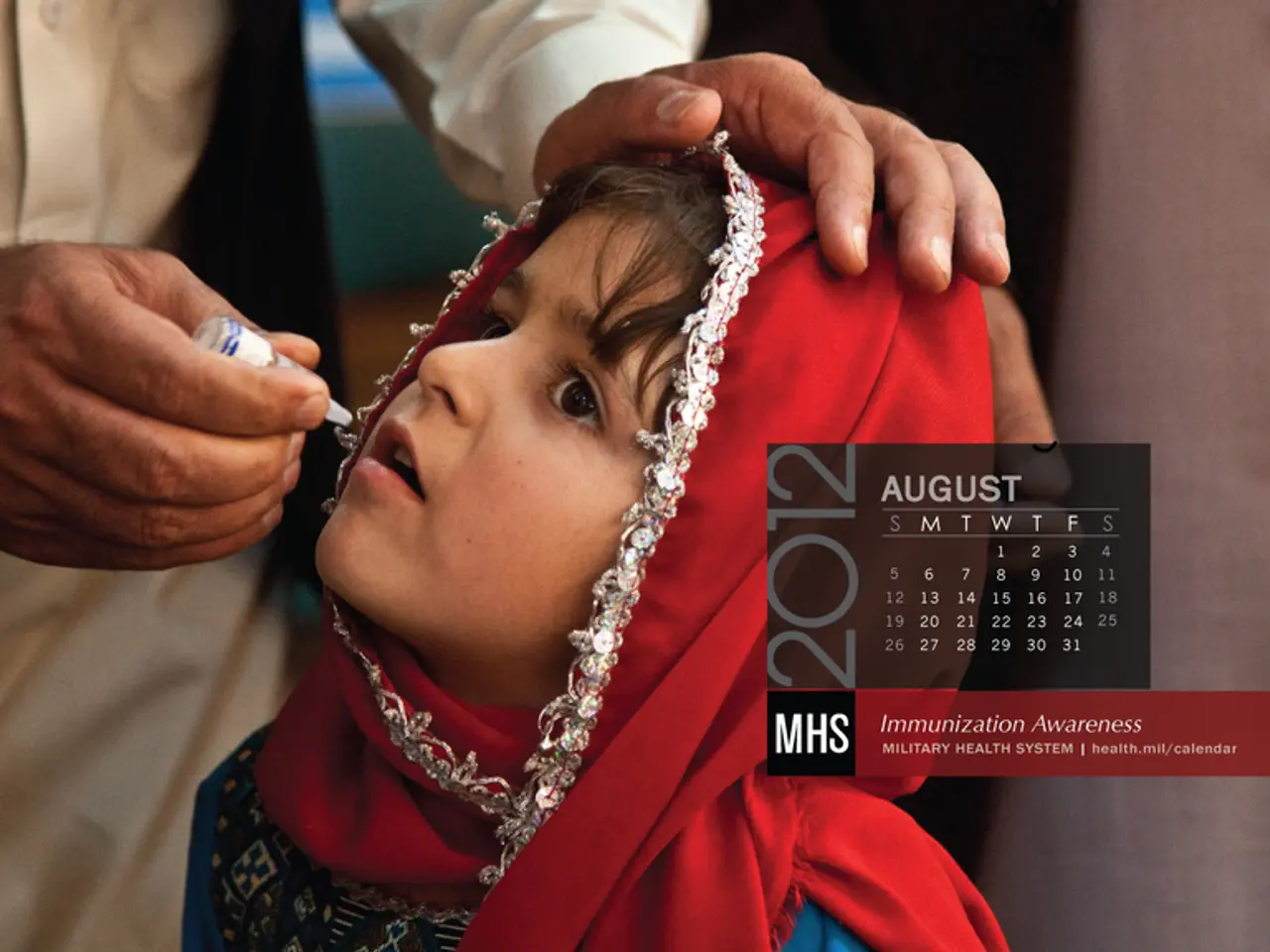Regeneron Provides Ebola Remedy for High-Risk Nations, Facing Potential Outbreaks
In a significant breakthrough, the U.S. Food and Drug Administration (FDA) has approved a treatment named Inmazeb for Orthoebolavirus zairense, also known as Zaire ebolavirus. This approval marks a crucial step in the fight against the deadly Ebola disease.
Inmazeb, developed by Regeneron Pharmaceuticals, Inc., consists of three monoclonal antibodies that help neutralize the Ebola virus. The treatment is indicated for the treatment of infection caused by Orthoebolavirus zairense in adult and pediatric patients, including neonates born to a mother who is RT-PCR positive for Orthoebolavirus zairense infection.
The safety and efficacy of Inmazeb were established through the PALM Trial during the 2018 Democratic Republic of Congo (DRC) outbreak. Regeneron Pharmaceuticals Inc. was the organization that provided Inmazeb to the DRC, donating and rushing supplies of Inmazeb for use during the Ebola outbreak there.
Inmazeb was developed using Regeneron's VelocImmune platform and associated VelociSuite technologies. Regeneron's unique ability to repeatedly and consistently translate science into medicine has led to numerous approved treatments and product candidates in development.
Regeneron is a leading biotechnology company that invents, develops, and commercializes life-transforming medicines for people with serious diseases. The company's medicines and pipeline are designed to help patients with eye diseases, allergic and inflammatory diseases, cancer, cardiovascular and metabolic diseases, neurological diseases, hematologic conditions, infectious diseases, and rare diseases.
Notably, Regeneron is donating up to 500 doses of Inmazeb to the World Health Organization (WHO) for exclusive use by governments of low- and lower-middle income countries. The organization has also provided guidance on the use of Inmazeb, recommending that the interval between live vaccination following initiation of INMAZEB therapy should be in accordance with current vaccination guidelines.
It is worth noting that INMAZEB may reduce the efficacy of live vaccines, so it is recommended to avoid the concurrent administration of a live vaccine during treatment with INMAZEB. The most common adverse events reported in at least 20% of subjects who received INMAZEB were pyrexia (or elevation in fever), chills, tachycardia, tachypnea, and vomiting. Inmazeb's safety information includes warnings about hypersensitivity reactions and infusion-associated events.
Inmazeb was approved by the FDA in 2020. However, limitations of use for INMAZEB include that its efficacy has not been established for other species of the Orthoebolavirus and Orthomarburgvirus genera. Despite this, the approval of Inmazeb is a significant milestone in the global effort to combat Ebola, and Regeneron continues to work towards developing innovative treatments for various serious diseases.
In 2023, Inmazeb was added to the WHO Essential Medicines List and became the first and only Ebola treatment to be prequalified by the WHO. As Inmazeb is rushed to the DRC to help with the current outbreak, there is hope that this treatment will bring relief to those affected by Ebola.






